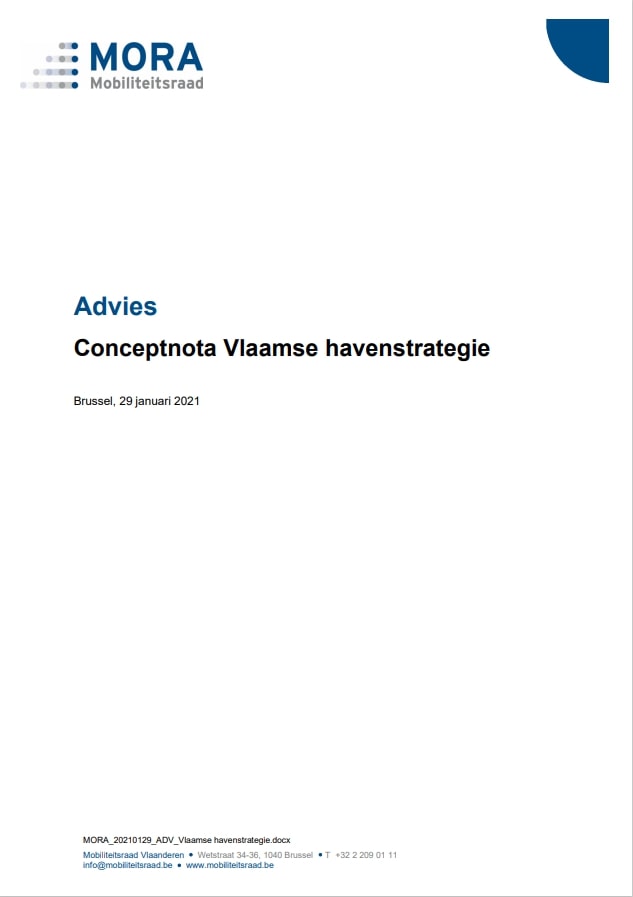The Flemish Government has always strongly focused on the accessibility and development of the infrastructure of the ports. The Flemish Port Decree has played an important role in this. The ports and the logistics sector in Flanders and elsewhere are now confronted with important new challenges. The challenges surrounding the climate and a low-carbon and circular economy are of such nature and magnitude that they cannot be tackled by one or more ports or the government individually. They require joined forces and the development of tailor-made solutions that make the advantages of our ports can be used optimally.
The Flemish Government approved the Flemish Port Strategy on December 17th, 2021. With this new strategy, the Government is committed to broadening and deepening the port policy. This strategy covers a period of ten years and discusses three global objectives: to strengthen competitiveness, achieve sustainable growth and development, and increase added value.
Following the final approval of the Flemish Port Strategy, the Flemish Government also approved a package of individual agreements between the ports of Antwerp, Ostend, Zeebrugge, North Sea Port and the Flemish Region. The aim of the individual agreements is to designate a first series of projects for each port in Flanders that will make the strategic themes in the Flemish Port Strategy concrete. The agreements are concluded for a term of 4 years (2022-2025). In view of the fact that the Flemish Port Strategy has been drawn up with a 10-year horizon, the intention is to further refine this new framework for the joint implementation of projects that fit within the Flemish Port Strategy in the future.


